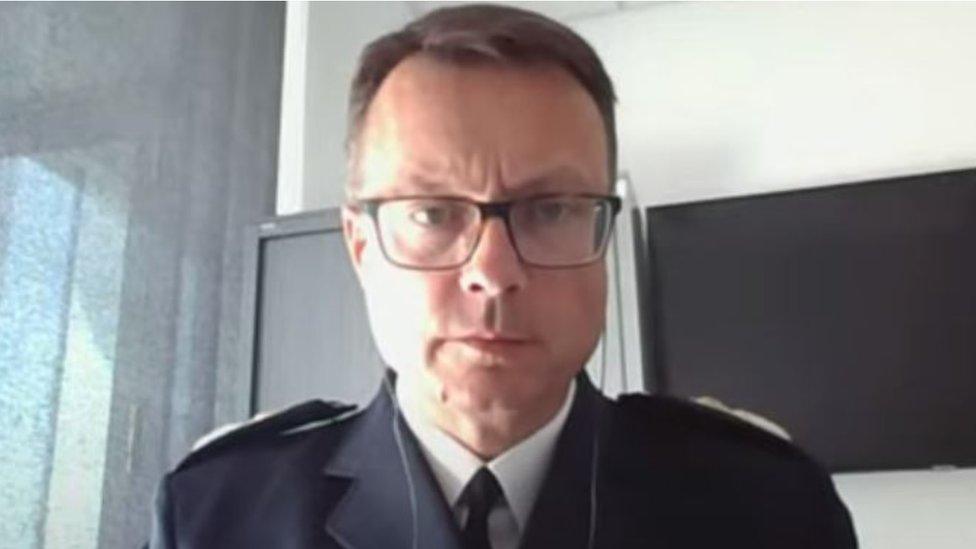Manchester Arena Inquiry: Police radio operator 'felt sick with stress'
- Published
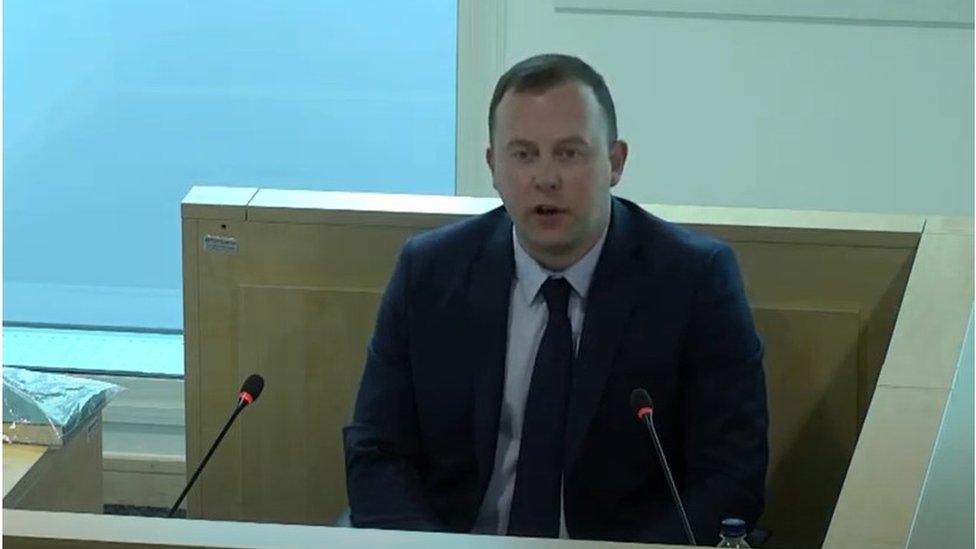
David Myerscough said his shirt was wet through with sweat from the intense pressure
A radio operator felt "overwhelmed" and "sick" when he was given a key control room role after the Manchester Arena bombing for which he had no experience or training, an inquiry heard.
David Myerscough, a civilian staff member at Greater Manchester Police (GMP), said it was the "worst night" of his professional life.
It was "horrendous" dealing with calls from senior officers, he said.
He said he was "wet through with sweat" from the intense pressure.
Twenty-two people were killed when Salman Abedi detonated a bomb at the end of an Ariana Grande concert at about 22:30 BST on 22 May 2017.
'Unsupported'
Mr Myerscough told the public inquiry into the attack that he was left answering a constant stream of important phone calls from senior commanders, firearms officers and other emergency services, while the Force Duty Officer (FDO) was busy commanding the immediate response.
He said should not have been put in the position he was.

Twenty-two people died in the attack on 22 May 2017
"It was horrendous. I realised at one point answering the phone that I felt physically sick at the stress and pressure of it. I [later] realised the shirt I was wearing was wet through with sweat from the intense pressure," he said.
Mr Myerscough, who had been a radio operator since 2014, told the hearing he took on the job of answering the FDO's line about 25 minutes after the explosion, when the senior officer asked for his help.
He told the inquiry he did everything he could to the best of his ability but felt unsupported.
He accepted that for the majority of calls he took on the night, he did not know the answer to the questions and did not have the authority to resolve the issues being raised.
'Completely stressed'
"I hadn't had the right sort of training for that role, I'm not familiar with the workings of the Force Duty Officer.
"I didn't feel prepared or qualified or experienced enough," he said.
He told the court he "felt totally overwhelmed and completely stressed out" and that "it was almost impossible to ask for the FDO's assistance because of how busy it was at the time".
The inquiry was told at 23:50 BST, around one hour and 20 minutes after the explosion, Mr Myerscough took a call from a fire service commander asking where the joint emergency service Forward Command Point (FCP) was.
Mr Myerscough admitted he did not know what a FCP was and didn't have "the faintest idea" how to manage the situation.
He told the inquiry that before May 2017 he had no training or experience in major incidents or responding to a terrorist attack and only had brief online training on the principles of multi-agency joint working.
The inquiry continues.

Why not follow BBC North West on Facebook, external, Twitter, external and Instagram, external? You can also send story ideas to northwest.newsonline@bbc.co.uk
Related topics
- Published7 May 2021
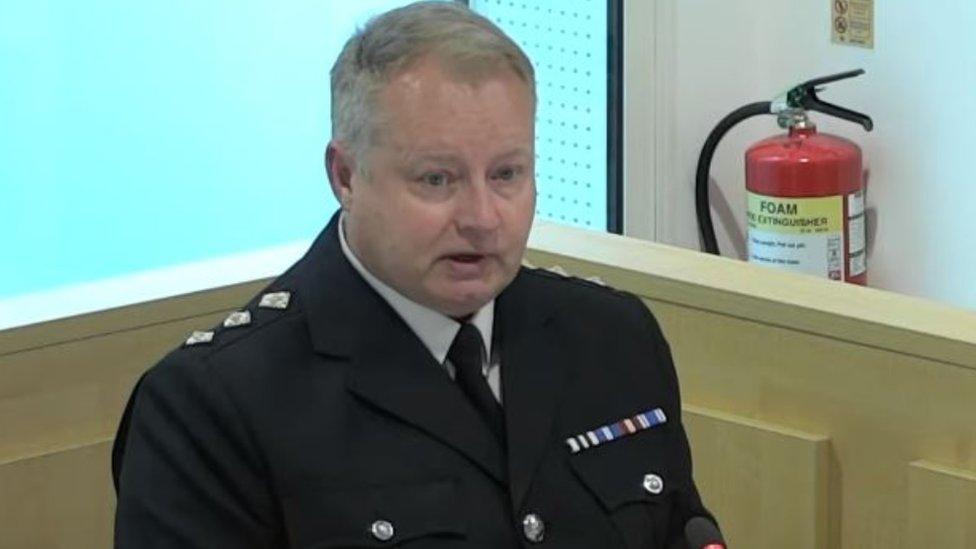
- Published6 May 2021
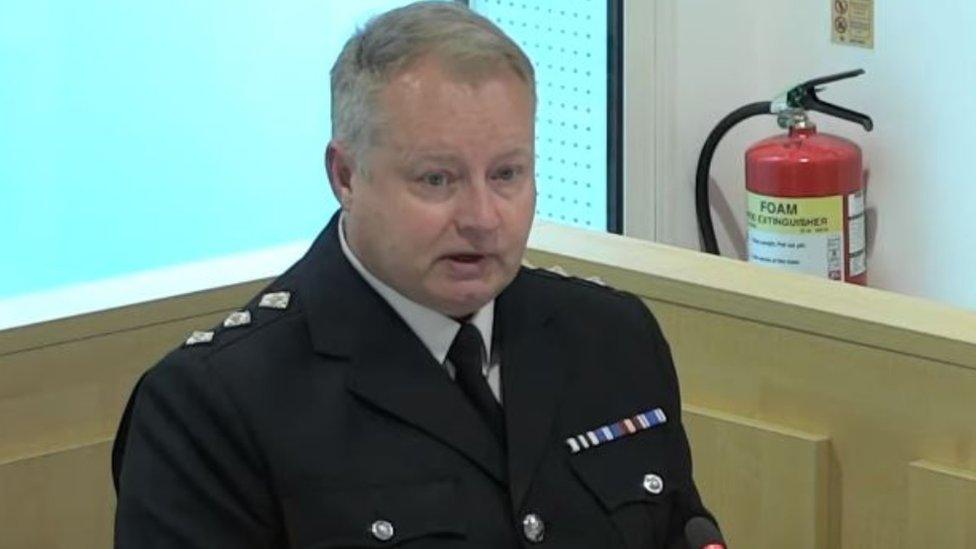
- Published5 May 2021

- Published29 April 2021
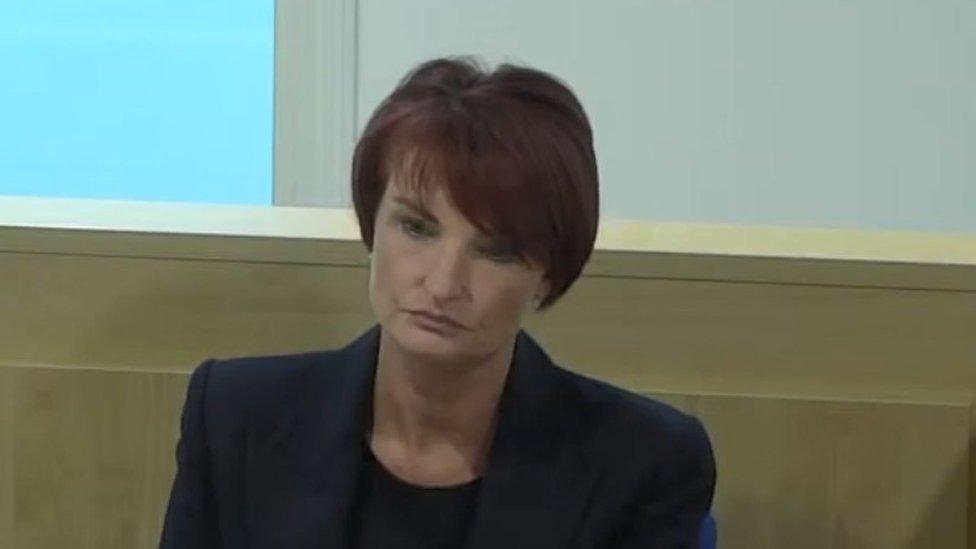
- Published28 April 2021
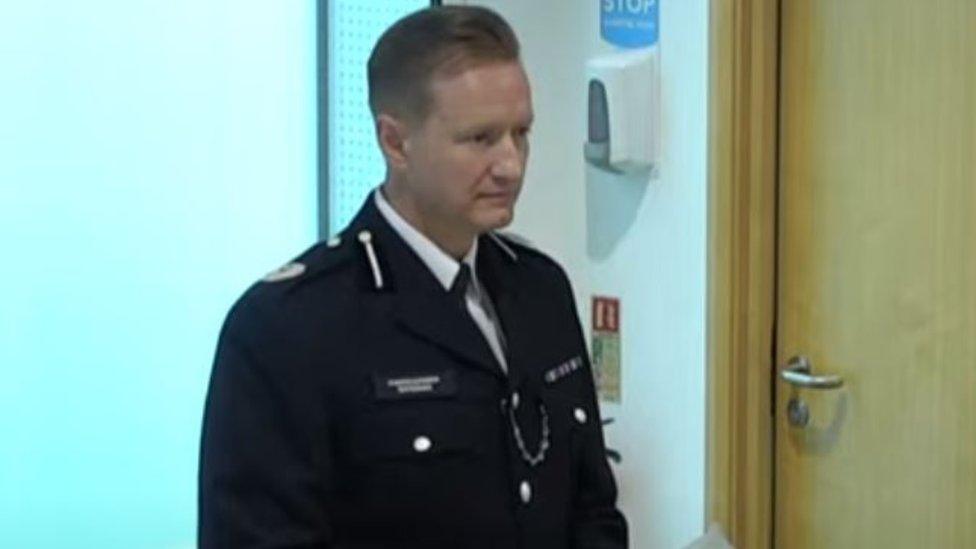
- Published27 April 2021
